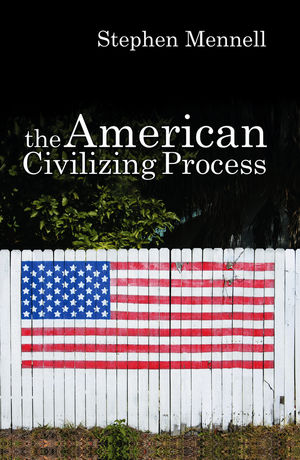The American Civilizing ProcessISBN: 978-0-7456-3208-7
Hardcover
400 pages
October 2007, Polity
 Other Available Formats: Paperback
|
||||||
Prologue:.
1 ‘American Civilization’.
The Founding Fathers as Philosophes.
‘Progress’ and ‘American Civilization’.
Fugitive government and ‘American Civilization’.
‘Human nature’ and ‘American Civilization’.
European absolutism and ‘American Civilization’.
Conclusion.
2 ‘Fellow Americans’ and Outsiders.
Others: the Native Americans.
Others: the Blacks.
Others: the Europeans.
Anti-Americanism: How the outsiders view the established.
Conclusion.
3 American Manners under Scrutiny.
American manners books.
Americans observed.
Technology, hygiene and deference.
Victorianism.
Informalization.
Conclusion.
4 American Aristocracies.
The colonial gentry.
The South: American Junkers?.
The North: Working upper classes.
From cumulative to dispersed inequalities?.
A significant absence: an aristocracy of office.
Conclusion.
5 The Market Society.
The constraints of the market.
The constraints of organization.
Conclusion.
6 Violence and Aggressiveness.
Long-term trends in violence.
Is America peculiarly violent?.
Capital punishment.
Conclusion.
7 And wilderness is paradise enow: From Settlements to Independence.
Autarky, but not terra nullius.
Population.
Early phases of the American state formation process.
Conclusion.
8 Westward Look the Land is Bright: From Frontier to Empire.
Manifest destiny and latent dynamics: a necessary theoretical digression.
The balance between the planned and the unplanned in US territorial expansion.
‘Sovereignty’ as a function of power ratios.
The Frontier.
Beyond manifest destiny: the beginnings of an American empire.
Conclusion.
9 Integration Struggles.
Urbanization and resentment of the city.
Immigration.
Growth of the means of ruling.
The breakdown: the Civil War and its aftermath.
A central ambivalence: the armed forces.
Conclusion.
10 The Curse of the American Dream.
Equality and inequality in America.
The American welfare state.
Social mobility in America.
Conclusion: Upwards identification, not mutual identification?.
11 Involvement, Detachment and American Religiosity.
Fantasy and the growth of knowledge.
American religion in long-term perspective.
Some explanations.
Odd one out - Europe or the USA?.
Conclusion.
12 America and Humanity as a Whole.
‘American Social Character’: Diminishing contrasts, increasing varieties.
The problem of the American homo clausus: the We-I balance.
Market fundamentalism and diminishing foresight.
Functional de-democratization.
The American Empire.
Conclusion: path dependency in America and the world.
Notes.
Bibliography.
Index



